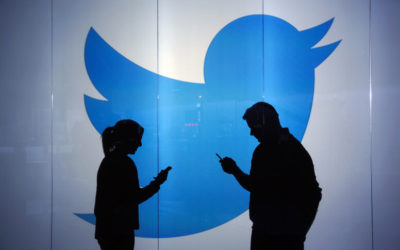President Trump wants to keep them out. Airbnb is inviting them in
Nexon acquires rights for Elsword Mobile game in Japan from China’s Kunlun
Nexon acquires rights for Elsword Mobile game in Japan from China’s Kunlun.
Nexon said that it has acquired publishing rights for Kunlun’s Elsword Mobile game in Japan.
Tokyo-based Nexon said it will announce the launch date in the Japanese market later.
Elsword Mobile is a side-scrolling action role-playing game, based on the original PC online game Elsword.
The game has more than 400 characters, a skill reinforcement system, real-time parties, player-versus-player, and guild co-op modes.
“We are pleased to collaborate with Kunlun’s development team, which has developed successful titles for users across the globe,” said Kihan Kim, Nexon’s mobile business division manager, in a statement.
“Elsword is a popular title in Japan, and we hope this mobile title to contribute to the further expansion of Nexon’s mobile game pipeline.
We will continue to deliver engaging game to users that would meet their expectation.” Kunlun launched Elsword Mobile in China in January 2016, and it went global in May 2016.
Fang Chen, CEO of Kunlun, said in a statement, “We are looking forward to working with Nexon to deliver our flagship mobile game, Elsword Mobile, to Japanese users.
We continue to develop the game by leveraging the strengths of the original game to deliver content which will engage our fans.” Kunlun is based in Beijing and was founded in 2008.
Starbucks CEO Schultz plans to hire 10,000 refugees after Trump ban
Starbucks CEO Schultz plans to hire 10,000 refugees after Trump ban.
Image Credit: http://www.flickr.com/photos/lilivanili/ (Reuters) – Starbucks Chief Executive Officer Howard Schultz said on Sunday that the company planned to hire 10,000 refugees over five years in 75 countries, two days after U.S. President Donald Trump’s executive order banning refugees from certain countries.
Trump on Friday put a four-month hold on allowing refugees into the United States and temporarily barred travelers from Syria and six other Muslim-majority countries, saying the moves would help protect Americans from terrorist attacks.
The order sparked widespread international criticism, outrage from civil rights activists and legal challenges.
Starbucks in a letter from Schultz told employees it would do everything possible to support affected workers.
The hiring efforts announced on Sunday would start in the United States by initially focusing on individuals who have served with U.S. troops as interpreters and support personnel in the various countries where the military has asked for such support, Schultz said.
Schultz has been outspoken on various issues and has put Starbucks in the national spotlight, asking customers not to bring guns into stores and urging conversations on race relations.
Schultz said on Sunday that if the Affordable Care Act is repealed and employees lose healthcare coverage, they would be able to return to health insurance through Starbucks.
Schultz also affirmed the company’s commitment to trade with Mexico, another subject that has been front and center of Trump’s campaign.
(Reporting by Devika Krishna Kumar in New York; Editing by Lisa Von Ahn)
Facebook, Tesla, Uber, Apple and Others React to Trump Travel Ban
Late last Friday, President Donald Trump signed an executive order that temporarily suspended refugee admission to the U.S. and banned travel for citizens from 7 muslim-dominated countries from coming to the U.S.
The order impacts citizens of Iran, Iraq, Libya, Somalia, Sudan, Syria and Yemen.
The decision impacts travelers from these countries for at least 90 days even if they have valid visas or permanent residence permits.
For instance, agencies changed position on whether green card holders from these countries were or weren’t covered by the executive order.
As of Sunday, the government says it will try to ease this group’s entry into the country, provided the traveler has no criminal background or terrorist ties.
Friday’s order also suspended a visa waiver interview program that made it easier for frequent travelers (including tourists and businesspeople) from 38 nations (countries such as Australia, France and Iceland) to come to the United States.
Businesses — including some of tech’s biggest names — responded to the order with dismay and shock.
Some worried that the chaos seen at airports across the country this weekend would find its way to the technology sector, stifling innovation and the flow of ideas as the inconsistently interpreted order made it harder to predict who can enter or leave the United States.
Some founders called the ban immoral or un-American while others offered ways to help both refugees and their own workers and families.
Here are a sampling of their reactions.
5 Phone Answering Mistakes That Drive Away Customers
Did you know the way you answer phone calls to your business could be driving away customers?
And the first, and perhaps most important, step to any phone experience is the way the phone call is answered.
They also perform the important function of helping define the customer’s specific needs so that the first human interaction is likely to be with a person qualified to address their needs.
So, here’s how to use an automated answering service, like an IVR, to retain customer and grow your business.
If your business already has an automated answering service, or you’ve determined your business needs an automated answering service such as an IVR, it’s time to look at how to make that answering service as caller-friendly as possible so you don’t lose customers or cause frustration.
Here are 5 common mistakes to avoid so you don’t drive customers away with your automated answering system: 1.
Avoid bland, boring, or confusing language, and make sure you’re using a voice that your customers can relate to and trust.
Only get the most pertinent information as to not lose the caller, and when in doubt, go back to the first point — keep it simple.
Do this instead: Devise a plan to have your team ask callers for feedback on your new IVR system.
It can be a survey or a simple question — “What did you think of our answering system?” Now that you know the common mistakes to avoid when it comes to answering calls to your business, use the five tips above to improve communications and customer satisfaction.
Why Canada’s startups should look to Asia for investors
Why Canada’s startups should look to Asia for investors.
The development of Asian growth markets in the past two decades has seen an evolution in the mindset of Asian investors, the rise of a large class of high-net-worth individual investors and family offices and dramatic expansion of outwardly focused Asian institutional investors.
Canada’s stable financial markets, a world-class R&D environment and innovation-focused companies – often available at significantly less frothy valuations than their U.S. peers – collectively provide an appealing investment environment for Asian investors.
A 2011 report, Innovation Canada: A Call to Action, flagged the limited availability of risk capital as a significant pain point for Canadian early-stage companies.
Persuading Asian investors to look beyond the more established startup ecosystem of Silicon Valley will take a sustained effort by Canadian stakeholders.
A number of groups are already moving to take advantage of opportunities in Canada’s emerging technology companies.
Horizon Ventures, Hong Kong’s largest venture-capital firm, with more than 100 investments completed, has invested in Canada more than anywhere else, except the United States and Israel.
The technology and innovation promotion community in Canada is also seeking new approaches to attracting Asian investors.
At the heart of Innovation City, a six-million-square-foot aspirational technology community planned for the west side of downtown Toronto, will be OneEleven, arguably Canada’s most successful emerging tech-company accelerator founded three years ago by OMERS Ventures, Ontario Centres of Excellence and Ryerson University.
Bringing on board one or more leading Asian partners would both provide accelerator companies additional access to capital and opportunities to on board strategic investors who can help take their growing businesses to significant emerging markets in Asia.
How to Continue Your Small Business Success After the Holidays
How to Continue Your Small Business Success After the Holidays.
The holidays are an extremely profitable time of the year for businesses of all sizes.
After all, they can account for 20-40 percent of a business’ yearly sales.
But what about after the holidays?
It’s time to encourage your consumer to find gifts for themselves.
Retarget your customers and shopping cart abandoners A lot of people shop around for the holidays, which means they might add a lot to a cart and never convert.
Consumers who are retargeted are 70 percent more likely to convert, and it can increase shopping cart completion by 26 percent.
With a little creativity, anything can appeal to the “New Year, New You” mentality.
Take this downtime to reflect on your marketing efforts from the past year and plan ahead for the new year.
Instead, use this time to plan out exactly what you can do to improve your marketing strategies to make this year the best one yet.
Echo Health Ventures Rob Coppedge talks about the coming reckoning to health tech investments
Echo Health Ventures Rob Coppedge talks about the coming reckoning to health tech investments.
Health tech investments have been red hot the last few years, but Rob Coppedge, the CEO of Echo Health Ventures says while the industry isn’t going to pop, it is a slowly deflating bubble.
He says what we were seeing in the last couple of years was a ramp-up of “tourist investors” in the space — eager Silicon Valley VC’s hoping to cash in on the trend.
“If you look at the amount of capital that’s been invested there and the implied market value that has to be created by these companies to get the sorts of exits that would be needed, you know there’s going to be some losers.” The coming deflation may also have to do with an uncertain startup ecosystem under Trump.
At least a few investors have also told us on background they are on edge about investing in health tech due to Trump’s plan to repeal the Affordable Care Act.
Oscar, ironically, was co-founded by the brother of Trump’s son-in-law Jared Kushner.
What he’s seeing now is it’s harder to raise the follow-on rounds and there are more bridge rounds, indicating startups aren’t able to get the valuations they wanted.
But founder Halle Tecco cautioned that could be because it takes months sometimes to close the round and make an announcement about it.
“Many of the tourist investors who’ve been dabbling in health care may say ‘this may be harder than we thought and we may not be able to use the same skills that we use in consumer internet. ‘” But he does believe there’s hope if you can change the structure from enterprise to consumer — something his firm is squarely focused on.
12 Things You Should Never Say at Work (Infographic)
12 Things You Should Never Say at Work (Infographic).
It’s easy to let something slip at work — especially when you’re feeling stressed or overwhelmed.
There are a number of potential scenarios where you can put your foot in your mouth.
Maybe you’re trying to provide constructive feedback and you end up coming off rude or critical, or perhaps you disagree with a co-worker, but instead of listening first, you interrupt.
There’s no need to hide what you want to say, but there’s always a polite, honest and effective way of doing so.
There are also certain phrases that you should always steer clear of.
Check out Headway Capital’s “12 Things You Should Never Say at Work” infographic below to learn more.
Time for innovation: Business incubators highlight successes of startups
Last updated in 2013, the Commerce Department this month released the new South Carolina Innovation Plan, which is intended to guide the growth of innovation and tech-related entrepreneurial activity in the state.
It encourages more business startups like those at Spartanburg Community College’s Center for Business and Entrepreneurial Development in Duncan and the bGEN incubator in Gaffney.
Encourage communities to provide affordable office space for innovators.
Generally, there seems to be widespread support for the idea that smaller businesses deserve the same encouragement as larger ones.
It provides space and basic office services without extensive overhead costs, and it serves businesses as large as BMW to individual entrepreneurs just starting out.
Money, of course, is helpful in getting started, but many other factors can make or break a new business.
Beth Smith, a consultant with the Clemson Area Small Business Development Center, has an office at SCC’s incubator, where she helps small business owners make the transition into the national or international market.
Now we’re seeing some truth that these initiatives are working (for smaller businesses).” The overall benefits from new jobs and spin-off business more than pays for any tax breaks offered new companies, he said.
Ziegelheafer said what’s really needed is to incentivize banks to to issue small loans ranging from $1,000 to $10,000 to startups. “Banks as a whole in South Carolina have had their return on assets nearly cut in half over the last eight years,” he said.
Israeli cybersecurity M&A slows as venture capital flows
We divide these companies into 16 distinct categories, with two new categories: “deception” and “software development life cycle.” While there is some minor overlap among categories, and some companies that could find a home in more than one category, we hope this landscape can continue to serve as a useful guide to professionals who closely follow the cybersecurity innovation coming out of Israel.
More capital, less M&A Looking at the last couple of years in the Israeli cybersecurity industry, the most obvious takeaway is that the amount of capital invested in Israeli cyber tech has doubled from $294 million in 2014 to $606 million in 2016.
Growth rounds crown the category leaders A third distinct trend is the increased number of large growth rounds in the Israeli cybersecurity industry.
Whereas rounds greater than $20 million were scarce to nonexistent in the past, there were seven such rounds in 2015 and 10 in 2016, including the $80 million mega-rounds of companies like ForeScout and Cybereason.
Companies raising such large rounds have presumably decided to forgo a near-term exit in order to focus on growth.
The landscape shows a high concentration of startup activity in each category, suggesting excessive local competition and presumably some level of overfunding.
However, based on the large financing rounds that took place this past year, category leaders are beginning to emerge and separate from the rest of the pack.
In other categories, such as automotive security, it looks like early M&A activity has weakened the remaining independent startups, which now have fewer potential acquirers.
He has invested in 25 Israeli companies in the past decade, including Wix (WIX), Intucell (acquired by Cisco), Ravello (acquired by Oracle), Leaba (acquired by Cisco), and Traffix (acquired by F5).
Tomer Diari is an associate based in Bessemer Venture Partners’s Israel office, where he focuses on opportunities in Israel and Europe, investing at every stage and across industries.
SuperData: Hearthstone trumps all comers in card market that will hit $1.4 billion in 2017
Research firm SuperData has released a new report on the digital card games market, which it expects to earn $1.4 billion in 2017.
For 2016, Hearthstone was in first among all digital card games with $394.6 million earned in revenue.
That was almost four times as much as the $100.1 million earned by Shadowverse, which ranked at No.
Blizzard supports the digital card game with a new expansion about every four months.
According to SuperData, Hearthstone earns at least $25 million a month, but that number has gone as high as $40 million.
Hearthstone has a player base of 20 million, and many of them spend money buying packs of cards in the free-to-play game.
Unlike Hearthstone and Shadowverse, which are available on PC, SuperCard is only a mobile game.
SuperData also noted that 7.6 percent of digital card game players in the U.S. buy in-game content, a higher percentage seen in other markets.
Many digital card games, including Hearthstone, are free-to-play, and buying digital packs is usually the fastest way to get new cards.
Also, 86 percent of digital card game players watch videos online videos of other people playing digital card games.
Startups: When and how to go vertical
Is there a concentration of buyers from a specific vertical in your customer base?
Are reps focusing on particular industries?
The signal of whether or not that content is discovered and viewed will test engagement and repeatability.
Do this before you start committing product and sales resources.
This is ideally someone in the sales or product marketing org because they have to have some vertical expertise.
Conversational fluency around an industry is what makes someone credible, so make sure the person showing up (or giving the demo, getting on the phone) knows the vertical well.
Figure out whether or not you have a repeatable formula that is worth the cost of specializing in the vertical before committing more deeply to it.
Vertical sales specialists are often overlays and don’t pay for themselves as quickly as generalist reps. You want the average deal size to either be higher than your standard deals or the average sales cycle to be faster.
But in most cases, verticalization means bigger deals, not faster ones.
Be sure the vertical is big enough to justify investing in the product.
Happy Data Privacy Day! How online security tools are growing alongside concerns over snooping
How online security tools are growing alongside concerns over snooping.
Data Privacy Day, or Data Protection Day as its known outside the U.S., was first introduced in 2007 as a day to promote best practices around online data privacy and security.
Earlier this week, internet organization Mozilla turbo-charged its privacy-centric Firefox Focus browser for iOS, adding more than 20 new languages, translated by its community of users.
And for International Data Privacy Day, we’re particularly proud to extend always-on privacy and the beauty of the really big ‘Erase Button’ to many more people around the world.” Growing concerns Data privacy and security has long been a concern for many individuals and organizations, but only now does it feel as though there is enough awareness for such concerns to infiltrate the mainstream.
In the wake of the U.S. election results, encrypted email service ProtonMail said that its sign-ups doubled, while data suggested that encrypted messaging App Signal had grown in popularity, too.
ProtonMail announced that its user growth doubled after the Yahoo hack was announced.
And a report from earlier this week suggested that politicians’ aides are increasingly turning to Signal, due to growing concerns around hacking.
However, on Donald Trump’s inauguration day — January 20 — founder and operator Ladar Levison relaunched the service, powered by a new “end-to-end encrypted global standard” called Magma — which Levison himself had developed.
He said: Today is Inauguration Day in the United States, the day we enact one of our most sacred democratic traditions, the peaceful transition of power.
In short, the world has more reason than ever to be concerned about their data privacy.
Big online game publishers turn to Playwire to monetize through ads
Playwire Media has locked in several partnerships that enable it to sell ads for online game publishers, generating incremental demand for web advertising inventory and helping advertisers reach the lucrative gamer market.
And it has now partnered with Miniclip.com, Roblox, and GameInformer.com.
For Miniclip.com, Playwire will be the exclusive partner to represent web advertising inventory in multiple countries, reaching more than 10 million monthly active players.
Playwire will now exclusively represent Miniclip.com’s digital web advertising inventory in the U.S., Canada, UK, Australia and New Zealand.
This partnership will significantly expand reach and access to new audiences in the gaming vertical for Playwire Media’s advertising partners, while delivering maximum yield and incremental demand for Miniclip’s online properties.
Image Credit: Playwire Media “Playwire has a great reputation and strong track record in advertising sales representation.” said Pieter Kooyman, director of advertising at Miniclip, in a statement.
“As such, Playwire Media was the obvious choice for us in selecting a monetization partner for our web properties in this multi-country deal.
Their portfolio consists of over 50 mobile games, including 8 Ball Pool, Soccer Stars and Agar.io, and a catalogue of over 1,000 online games.
And it is also now working with Roblox, which has a Lego-like online gaming world where kids can build their own experiences and games.
With over 22 million user-created games and a community of over 700,000 creators, Roblox is the largest growing social gaming platform, offering millions of immersive 3D worlds to explore, players to meet, and games to play in a family-friendly environment.
Apocalypse Now game will acquaint a new generation with the smell of napalm in the morning
Lawrence Liberty, a video game veteran, is the executive producer of the game and one of a handful of Apocalypse Now enthusiasts who went on a journey up the river to keep this game alive.
Coppola felt that the storytelling in games had progressed to the point where a game could do the subject justice, and he wanted to keep the game as an independent project.
Liberty: My involvement goes back to 2010.
I rejoined the effort in early 2015, but Monty had started putting things together again back in 2013 and 2014.
GB: Were you interested in doing something with Apocalypse Now in particular?
I’m certainly a Coppola fan, and Apocalypse is in my top 10 movies of all time.
Really, what interests me is figuring out how to develop a game and game systems that feel good, feel natural, and will have to be more artful and subtle – not big, obvious HUD elements indicating things like health and enemy location.
Liberty: Exactly.
GB: When you’re talking with Coppola, how do some of those conversations go?
Have you put many people together yet?
Doom creator’s 12-year-old son releases first game on Steam: Gunman Taco Truck
Doom creator’s 12-year-old son releases first game on Steam: Gunman Taco Truck.
Gunman Taco Truck has arrived on Steam.
The zany post-apocalypse title was designed by Donovan Brathwaite-Romero, the 12-year-old son of two famous game developers, Doom creator John Romero and Wizardry designer Brenda (Brathwaite) Romero.
In the game, you play as the last Mexican, saving the world one taco at a time.
Donovan created the design for the game when he was 9 years old, and his parents put together a team to turn it into a reality.
Image Credit: John Romero Gunman Taco Truck is an action-packed drive across a post-apocalyptic United States to reach the safe haven of Winnipeg, Canada, where there are no taco trucks and your family’s taco business can thrive.
The title uses 8-bit graphics, an increasingly popular and nostalgic art style.
It’s also a bloody side-scrolling game where you have to shoot at mutants coming down the road at your truck.
“It’s basically been one of my dreams to create a game, and my dream has come true.” Following a coding lesson, Donovan pitched the idea of Gunman Taco Truck to his parents.
They liked it so much that decided to make its development a family project.
If Trump bans Twitter employees from returning to the country, does @Jack ban @RealDonaldTrump from Twitter?
If Trump bans Twitter employees from returning to the country, does @Jack ban @RealDonaldTrump from Twitter?.
After a week of almost unanimous silence, the tech industry is speaking out against Trump’s policies en masse today.
Facebook CTO Sheryl Sandberg was the first major tech executive to challenge the president over his anti-abortion policy, saying on Thursday that it “could have terrible consequences for women and families around the world.” Then on Friday, Zuckerberg himself issued a response to Trump’s order banning refugees and barring citizens from Iraq, Iran, Syria, Sudan, Libya, Somalia, and Yemen from entering the United States for 90 days.
The cause for the sudden opposition is simple: At this moment, “nearly 200” Google employees are reportedly affected by Trump’s ban.
A small handful of tech leaders, like Elon Musk and Peter Thiel, are attempting to sway the President’s polices in various directions with reason.
But so far there’s no sign that this strategy is working.
Now is perhaps a good time to ask: At what point do we demand for Trump to reopen our doors?
If Trump weakens libel laws and starts aggressively jailing journalists and intimidating activists — including as the groups of tech workers who’ve organized against him — will Silicon Valley act?
What about Google?
This is far more grave.” Silicon Valley needs to decide what is okay and what isn’t, and draw a hard line.


















